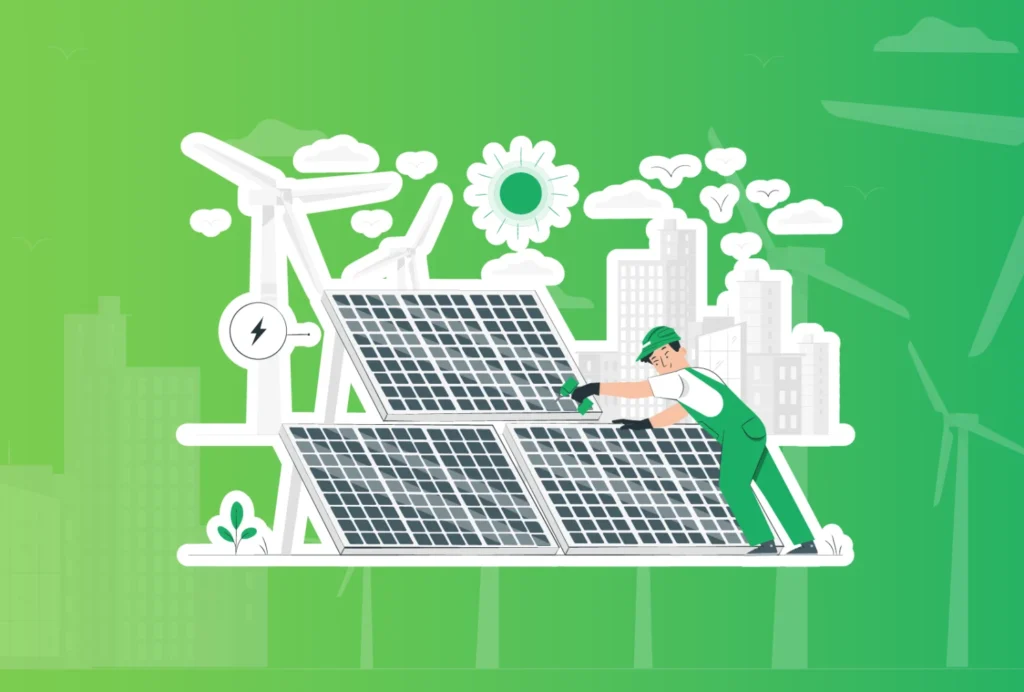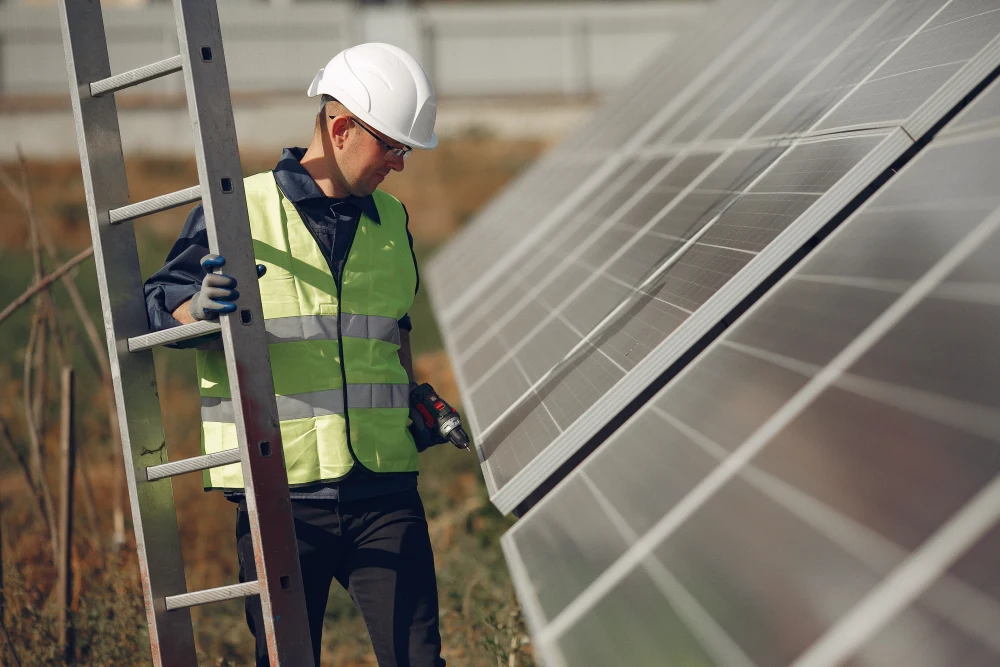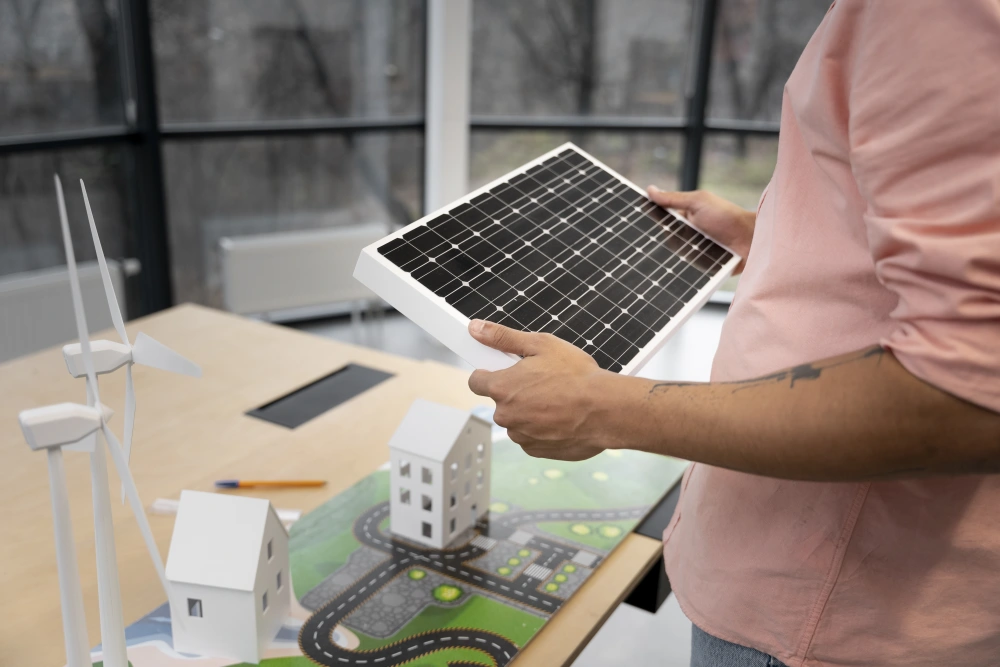Renewable Energy Engineer

Renewable Energy Engineer
Job Sector
Energy and Natural Resources
Potential Salary (USD)
Low End: $40,000.00 /yr
Avg/Med: $85,000.00 /yr
High End: $160,000.00 /yr
Education Required
- Bachelor of Science in Mechanical Engineering, or
- Bachelor of Science in Energy Systems, or
- Master of Engineering in Clean Energy
Job Outlook
The renewable energy sector is one of the fastest-growing industries, driven by the global push to reduce carbon emissions and transition to sustainable energy sources.
Career Profile Overview
Renewable Energy Engineers specialize in designing, developing, and implementing systems that generate energy from renewable sources such as solar, wind, geothermal, and hydroelectric power. They play a crucial role in reducing reliance on fossil fuels and mitigating climate change by promoting sustainable energy solutions.


Key Responsibilities
System Design and Development
- Design renewable energy systems, including solar panels, wind turbines, and geothermal plants.
Project Planning and Management
- Oversee the development of renewable energy projects from conception through to completion.
Energy Efficiency Analysis
- Analyze energy needs and usage patterns to determine the most appropriate renewable energy technologies for specific applications.
Research and Innovation
- Stay current with advancements in renewable energy technologies and materials. Conduct research to improve existing systems and develop new, innovative solutions.
Environmental Impact Assessments
- Develop strategies to minimize negative effects on the environment and ensure compliance with environmental regulations.
Technical Support and Maintenance
- Provide ongoing technical support for renewable energy systems. Monitor performance, troubleshoot issues, and ensure systems operate at peak efficiency.
Collaboration and Consultation
- Work with a diverse range of stakeholders, including government agencies, businesses, and community organizations, to promote renewable energy projects and policies.
Educational Path
High School
- Basic understanding of science, mathematics, physics, and electronics is important for this role.
Postsecondary
- Bachelor’s Degree in Engineering
Advanced Degrees
- Master’s Degree in Renewable Energy Engineering or Sustainable Energy
Certifications
- Professional Engineer (PE) License
- Certified Energy Manager (CEM)
Entry-Level
Renewable Energy Technician
- Installs, maintains, and troubleshoots renewable energy systems, such as solar panels or wind turbines, under supervision.
Junior Engineer
- Assists in the design, analysis, and implementation of renewable energy projects, performing calculations and preparing technical drawings.
Energy Analyst
- Collects and analyzes data related to energy consumption and production to identify opportunities for efficiency and renewable energy integration.
Mid-Level
Renewable Energy Engineer
- Designs, develops, and optimizes renewable energy systems and projects, conducting feasibility studies and ensuring compliance with regulations.
Project Manager
- Oversees renewable energy projects from initiation to completion, managing budgets, schedules, resources, and stakeholder communication.
Sustainability Consultant
- Provides expert technical advice and engineering solutions to clients on renewable energy project development, design, and performance.
Senior-Level
Senior Renewable Energy Engineer
- Leads complex renewable energy projects, provides technical leadership, mentors junior engineers, and contributes to strategic planning.
Director of Renewable Energy Programs
- Directs and manages all research and development activities for new renewable energy technologies and solutions within an organization.
Chief Sustainability Officer
- Conducts advanced research in renewable energy, teaches engineering courses, and mentors graduate students in an academic setting.
Skills and Qualities
Engineering Principles
- Strong understanding of engineering principles, renewable energy technologies, and sustainable design practices.
Problem Solving
- Ability to develop innovative solutions to technical challenges and optimize systems for performance and efficiency.
Project Management
- Capable of managing large-scale projects, including budgeting, scheduling, and coordinating with multiple stakeholders.
Data Analysis
- Proficient in analyzing data related to energy production, system performance, and environmental impact.
Communication
- Effective in conveying technical information to non-experts and collaborating with diverse teams.
Safety Practices
- Precision in design, analysis, and implementation to ensure safety, efficiency, and reliability of renewable energy systems.
Sustainability
- A strong commitment to environmental sustainability and reducing the carbon footprint of energy systems.
United States
Massachusetts Institute of Technology | Massachusetts
- Program: Bachelor of Science in Mechanical Engineering with a focus on Energy and the Environment
- Website: MIT
Stanford University | California
- Program: Master of Science in Civil and Environmental Engineering with a focus on Sustainable Design and Construction
- Website: Stanford
University of California | California
- Program: Master of Engineering in Energy, Civil Infrastructure, and Climate
- Website: UC Berkeley
Canada
University of Toronto | Ontario
- Program: Bachelor of Applied Science in Electrical Engineering with a focus on Energy Systems
- Website: U of T Electrical Engineering
University of British Columbia | British Columbia
- Program: Master of Engineering Leadership in Clean Energy Engineering
- Website: UBC Clean Energy Engineering
McGill University | Quebec
- Program: Bachelor of Engineering in Mechanical Engineering with a focus on Energy and the Environment
- Website: McGill Mechanical Engineering
James Harper
Career Profile In Partnership with Connected North
The Future Pathways Fireside Chats feature Indigenous Role Models speaking about their careers and learning journeys.

Background
James is a Master’s student in Renewable Energy, which has allowed him to travel to places like Barcelona and Paris while studying sustainability.
He is a citizen of Sturgeon Lake Cree Nation on Treaty 8 territory.
He was born in Edmonton and grew up in Winnipeg, where he has found fulfillment in science and technology to empower nations across Canada.
Fostering Community
James looks to empower Indigenous communities across Canada by organizing events such as SevenGen, the first Indigenous Energy Summit, which included over 300 students in 2019.
The conference included energy speakers, Indigenous leaders, entrepreneurs, and experts in clean technologies to amplify the voices of Indigenous youth in a way that can set a course to sustainable energy for every community.
Sustainable Engineering & Indigenous World Views
When defining sustainability, he reflects on what his Cree ancestors envisioned their children to be doing:
Protecting our earth for the children of tomorrow, and carrying forward the vision of considering seven generations ahead.
In practice, he has led sustainable engineering projects such as the design and construction of an eco-car. James motivated team members, raised funds, and represented Canada in an international competition to reduce energy consumption for vehicles.
Advice to Young People
When considering moving away from home for education or a new job, James encourages young people not to be afraid to lean on their support system.
As he made the decision to pursue a Master’s overseas, he kept in mind what his grandmother taught him:
As long as you are somewhere on this earth, you are connected to all of us.
He also advises young people to take a risk, even if they know that failure may be a part of it. He celebrates failure along the way, viewing it as a stepping stone on a journey of growth.
Source
Future Pathways: James Harper Fireside Chat
SevenGen: Indigenous Youth Energy Summit


Resources and Further Reading
- U.S. Department of Energy: Renewable Energy
- American Society of Mechanical Engineers: Renewable Energy Search
- Renewable Energy World
